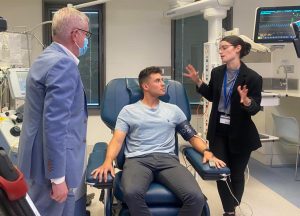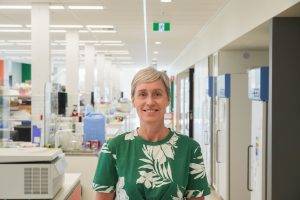A first in human trial aiming to restore glucose control in patients with type 1 diabetes using genetically engineered islet cells is set to go ahead following funding from the Australian Government.
The joint project between the Royal Adelaide Hospital (RAH) and the Garvan Institute of Medical Research was awarded $749,979 as part of a $16.9 million package towards cutting edge medical innovations.
A new hope
Type 1 diabetes occurs when the body’s immune system attacks its own islet cells, which are created in the pancreas and produce the hormones that regulate blood sugar, such as insulin.
Transplantation of healthy donor islet cells to is a proven way to give patients with type 1 diabetes the ability to create their own insulin.
However, immunosuppression medication is required to turn down the immune system so it won’t destroy the donated cells, but that leaves a patient vulnerable to infections and cancers, as well as kidney damage.
Professor Shane Grey, and his team at the Garvan Institute of Medical Research, identified that a key protein known as A20, involved in inflammation and autoimmune disorders, could be used to slow or stop the immune system from damaging islet cells.
“A20 is like a thermostat for the immune system; it can turn it down to a simmer, or ramp it up to be more aggressive,” says Professor Grey. “For type 1 diabetes, we can use it as a handbrake on the immune system to stop the damage to pancreatic islet cells.”
The project will focus on assessing the safety and efficacy of genetically engineered islet cells with high A20 expression, which may be more likely to survive inside of the transplant recipient.
“The holy grail is to make islet cells that the body adopts as its own, which function normally to sense glucose and produce the appropriate amount of insulin,” says Professor Grey.
In addition to Professor Grey at the Garvan Institute, the project will be led at the RAH by Professor Toby Coates AO, Director of Kidney and Pancreatic Islet Transplantation.
The trial is one of fifteen innovations to receive funding.
“These promising projects show once again that Australian medical researchers are among the best in the world, said The Hon Mark Butler MP, Minister for Health and Aged Care.
“With funding from the Government and support from research translation partners, they are all poised to progress along the road to becoming part of next generation medicine.
“Every Australian can be proud of the contribution these research teams are making to changing the outlook for patients with life-changing health issues.”



